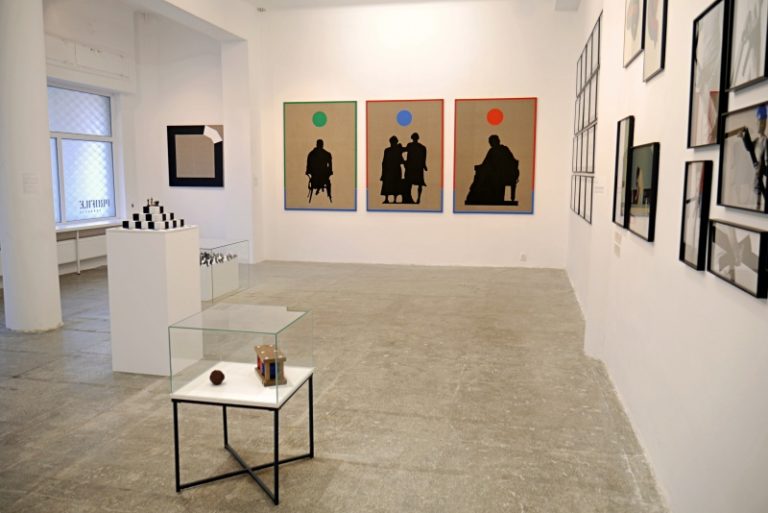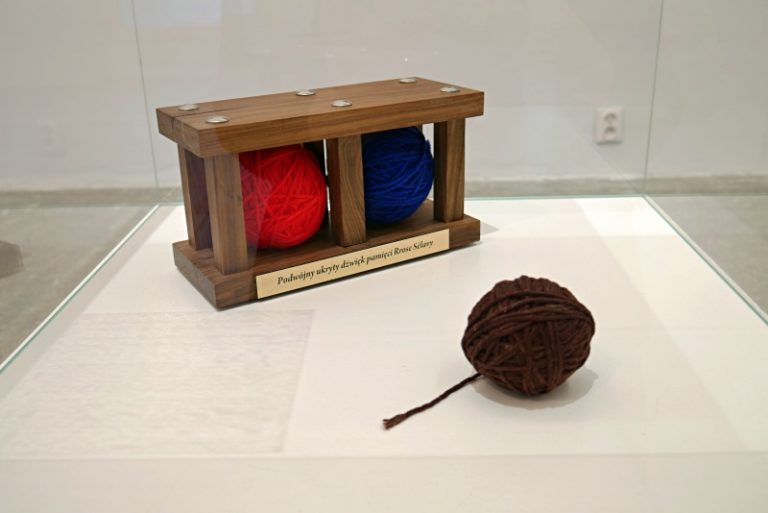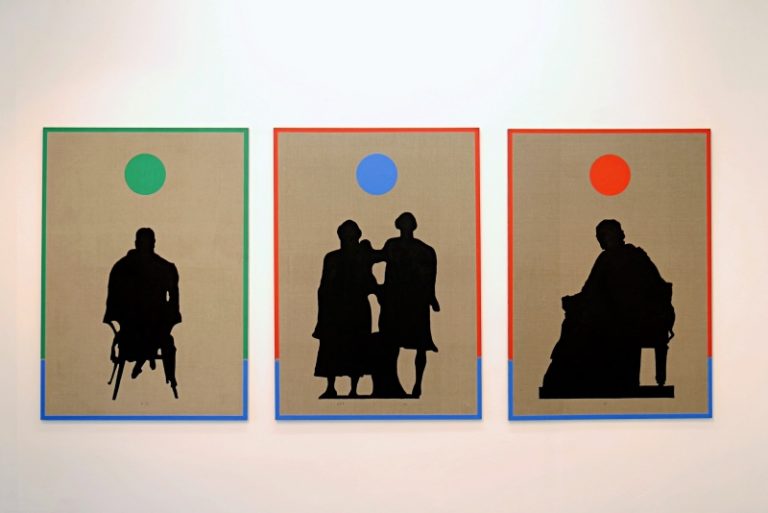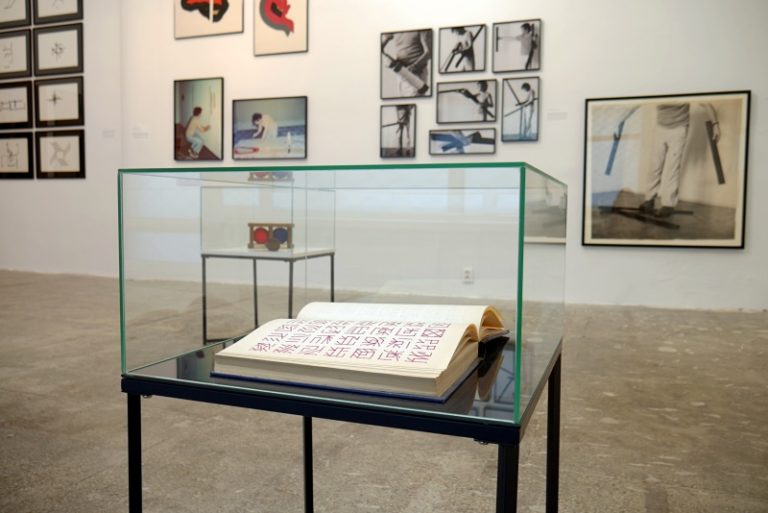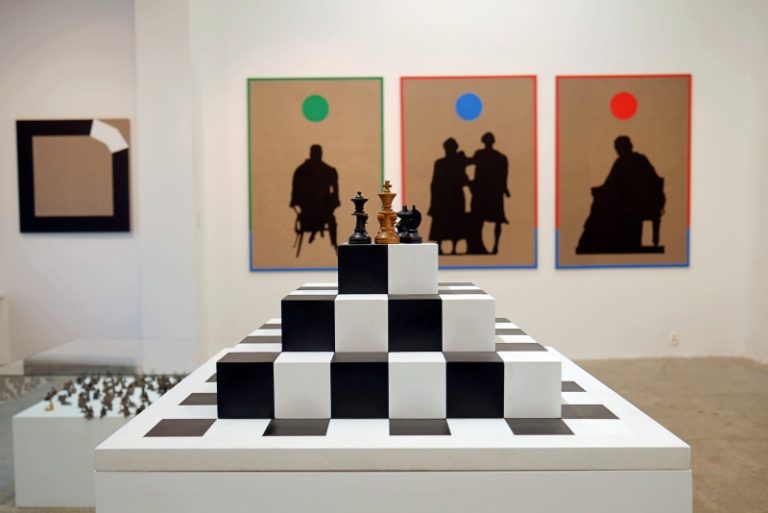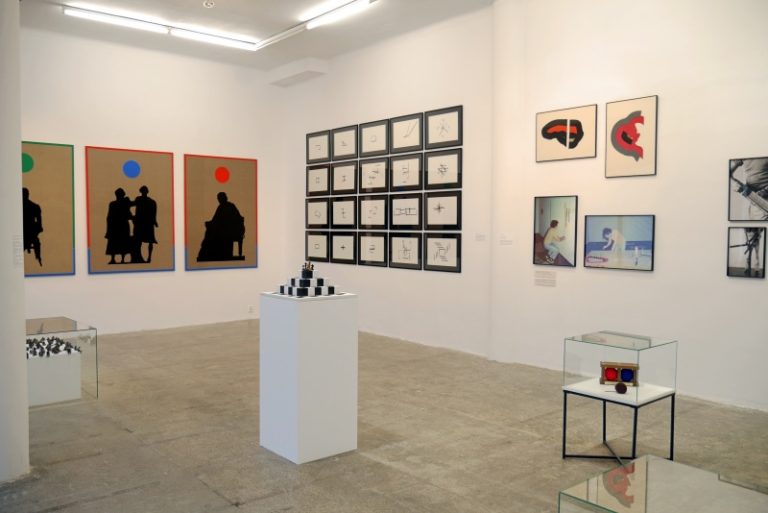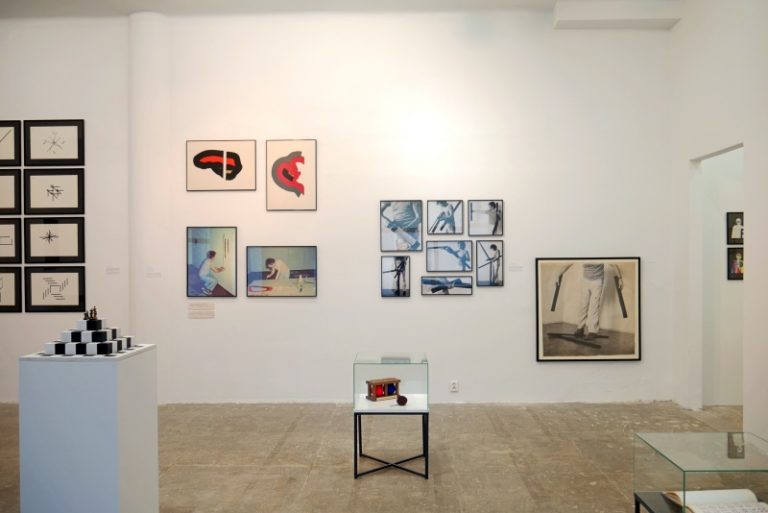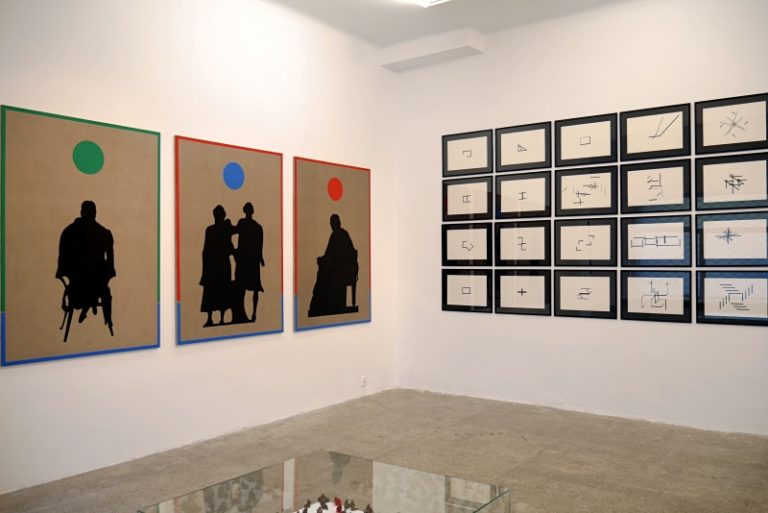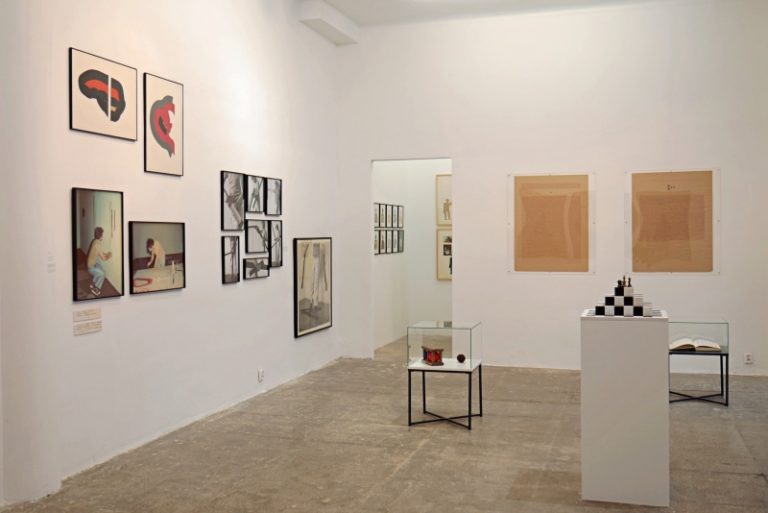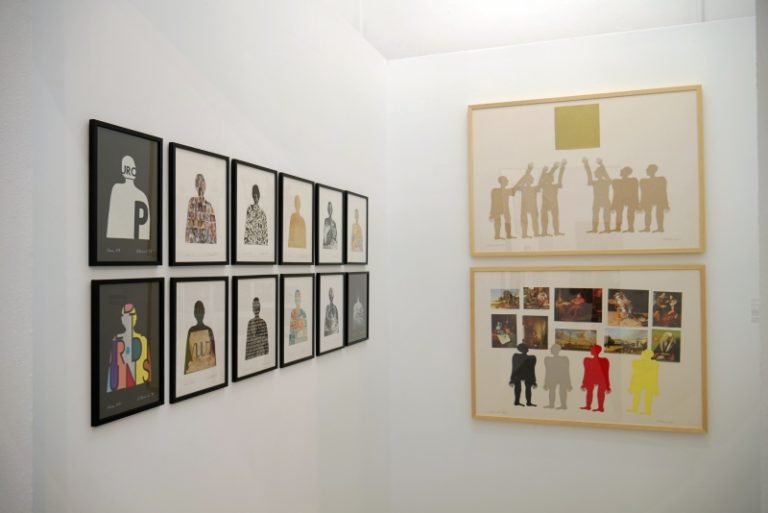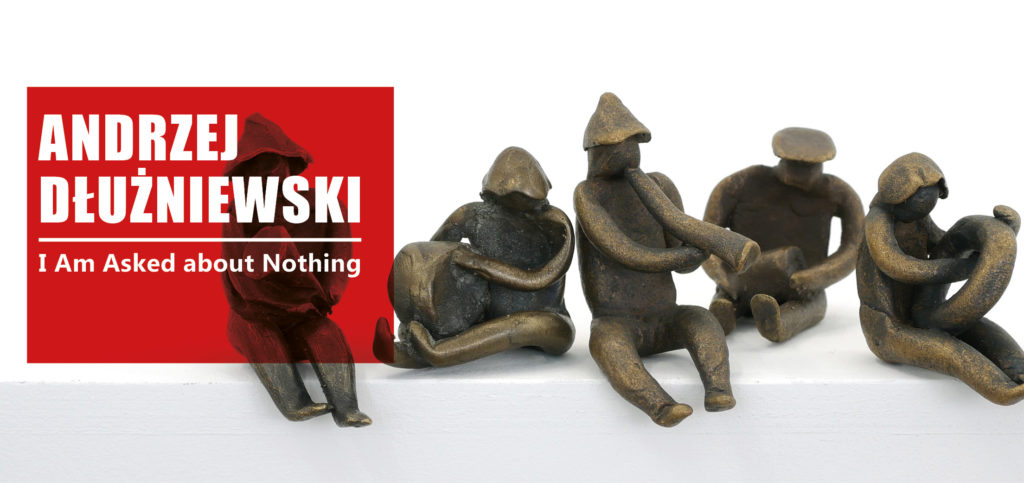
Opening: Friday, September 20, 2019, 7 p.m. The exhibition is on view through November 2 Tuesday–Saturday, 12 noon–7 p.m. During the Warsaw Gallery Weekend: September 21 and 22, 12 noon–7 p.m.
Multifaceted and employing diverse media, the art of Andrzej Dłużniewski refuses to be pigeonholed. He is known as an author of paintings, drawings, photographs, collages, sculptures, objects, installations, performances as well as literary forms and books. Obvious are his participation in the neo-avant-garde revaluations and conceptualization of art, his affinities with Fluxus, and above all, the twofold affiliation of his practice, pursued in both the field of the visual arts and the literary field.
In his works, Dłużniewski often combined things, images, and words, using them to both specify and differentiate each other. For him, to conceptualize art didn’t mean to theorize or firmly categorize, but rather to problematize, to call seemingly obvious things and matters into question. His works and texts raised questions that he left unanswered. He actually made such open-endedness the essence of his artistic activities, producing multiple versions and linguistic modifications of his works.
In the 1970s, a whole range of his works deconstructed the notion of the painting, which as such was usually absent from them. Tongue-in-cheek, he played with viewers’ expectations, he was in principle opposed to the use of any ‘method’ and ruthlessly mocked those placing faith in consistency
In the mid-1980s, he became preoccupied with the relation between the meaning of words and their grammatical gender, different in different languages, investigating it and asking questions about it to rouse viewers from ontological stupor.
Andrzej Dłużniewski’s works, commentaries, and texts offer insight into his mischievous dialogue with the modernist tradition, his ironic projects concerning the functioning and perception of contemporary art, philosophical and aesthetic studies of not necessarily artistic matters: a visual/textual, intellectually stimulating discourse initiated in the 1960s and continued until the artist’s death in 2012.
Andrzej Dłużniewski, born in Poznań in 1939, died in Warsaw in 2012. In 1970, he was employed at the Faculty of Interior Design at the Academy of Fine Arts in Warsaw, inn 1991, he received the title of assistant professor and took over the Intermedia Studio, which he led until his death in 2012.
From 1980 to 1993, together with his wife Emilia Małgorzata Dłużniewska (a graduate of painting), he ran a gallery in their flat at 20/26 Piwna Street in Warsaw. They organised exhibitions, performances, meetings with authors, lectures and readings by Polish and foreign artists. Piwna 20/26 was one of the key places of the artistic alternative, functioning independently of the official cultural policy. Andrzej Dłużniewski’s artistic practice included painting, drawing, photography objects, sculpture and installations. Simultaneously with visual arts, he also engaged in various literary forms, from prose to concreto poetry.
In 1997, as a result of a car accident, Andrzej Dłużniewski lost his sight, but did not cease his artistic and pedagogical activities. He made sculptures and collages, wrote short stories and literary forms, and created paintings with the help of Maciej Sawicki, his wife Emilia Małgorzata Dłużniewska, and since 2007, his son Kajetan Dłużniewski. He won the Katarzyna Kobro Award (2003) and the Jan Cybis Award (2006). In recognition of his merits for the blind and visually impaired, he was awarded the Knight’s Cross of the Order of Polonia Restituta (2009).
